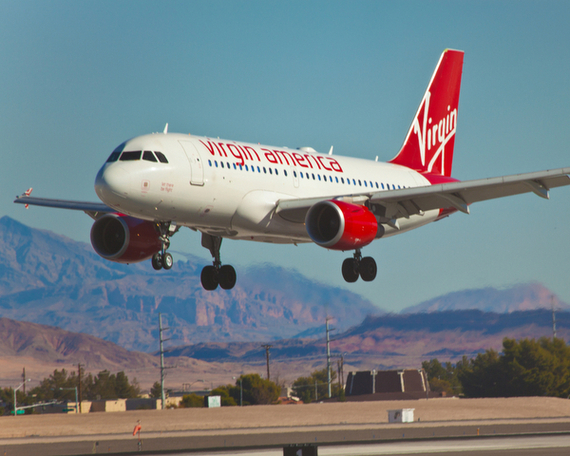The intoxicating combination of junk fees and loyalty programs seems too powerful for even the most consumer-friendly airline to resist.
At least that's what passengers like Peter DeForest are discovering when they try to change an award ticket.
He'd saved up enough frequent flier miles on Virgin America, an airline with a stellar reputation for taking care of its customers, to fly himself and a companion from San Francisco to Las Vegas. But shortly before the trip, his companion fell ill. He asked Virgin if he could cancel the trip and get his miles back.
Sure, a representative told him. If he paid the airline a $100 per reservation "redeposit fee."
Seriously?
"It's ridiculous," he says. "It's nearly the value of the points themselves."
DeForest's fee encounter comes at a time when airlines are imposing all kinds of new junk fees. Virgin Atlantic is reportedly adding a $41 seat reservation fee for certain flights and United Airlines is doubling some baggage fees, for example.
I agree with him. I'm not a frequent flier on Virgin, but I kind of wish I were. The airline has, in the past, gone out of its way for its customers, so I couldn't believe it would stick it to someone like DeForest, who uses the airline frequently for work.
By way of full disclosure, I'm not one of those bloggers who study loyalty program rules as if they're holy scripture. I respond to complaints and try to solve them. So I suggested DeForest contact Virgin in writing, to make sure this wasn't a misunderstanding.
He did.
In response, Virgin apologized in writing for his "disappointment." (When someone apologizes for the way you feel, it's not real. By the way, you can do that with my previous apologies on this site, too. Scroll back in the archives. They're not real.)
"We do make every effort to disclose, prior to booking a flight, all of the terms and conditions of the specific fare type that is being booked," a representative said. "In the case of a rewards booking, that does include letting the guest know that there is a fee involved and cancellation required if a change to the reservation is needed. It's never ideal when your plans change, but we don't want it to be a surprise to you if that occurs."
Virgin's fees are clearly disclosed on its site, and by the way, they're more or less in line with the rest of the big airlines. (Here are United's, for example, and here are Delta's.)
DeForest doesn't buy it. He calls the redeposit charge a "junk" fee -- after all, how much can it cost to put his miles back into his account? -- and suggests it's just another revenue generator for an airline like Virgin.
An airline, by the way, that ought to know better.
"How can [Virgin] justify such a high fee for what is really a simple request?" he wonders. "I have been a loyal Virgin flier, and my consulting firm's staff also flies Virgin frequently to our meetings on the East Coast. Through no fault of mine, my companion was unable to make the trip. I tried to do the right thing and cancel the reservation. But I feel that Virgin was unfairly adding high fees just to re-deposit miles."
You probably don't have to dig too deep to find out what's going on here. For the last two quarters, Virgin America has reported healthy profits. The last quarter was a record.
As I reviewed its latest earnings, my eye fell to the "other revenue" category, which is likely to include fees and surcharges. They're up 15 percent to $35 million from the year-ago quarter, thanks in no small part to fees like DeForest would have paid.
Who can begrudge Virgin or any of the other airlines making money? After all, that's what they're supposed to do. But somehow, we always assumed they'd build their profits on charging us for an actual service, not a junk fee that passengers like DeForest can't seem to justify.
If you take a little time to dissect DeForest's problem, the absurdity becomes obvious. DeForest participated in Virgin's revenue-based "loyalty" program, which means he spent real money to fly on the airline. In exchange for his business, the airline offered him non-revenue seats -- the kind that would have gone unoccupied. His plans changed, and now Virgin wants to charge him more money and it will probably either resell the seats or give them to other frequent fliers, effectively double-dipping.
Is this what loyalty looks like in the 21st century? If so, count DeForest out.
Count me out, too.
After you've left a comment here, let's continue the discussion on my consumer advocacy site or on Twitter, Facebook and Google. I also have a free newsletter and you'll definitely want to pre-order my new, amazingly helpful and subversive book called How to Be the World's Smartest Traveler (and Save Time, Money, and Hassle). Chris Parypa Photography / Shutterstock.com
